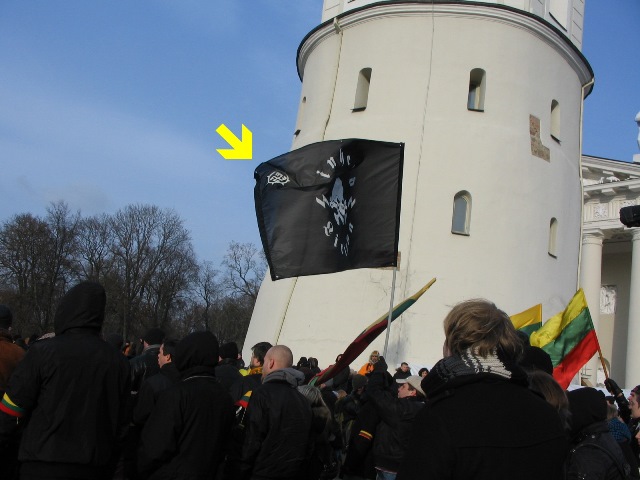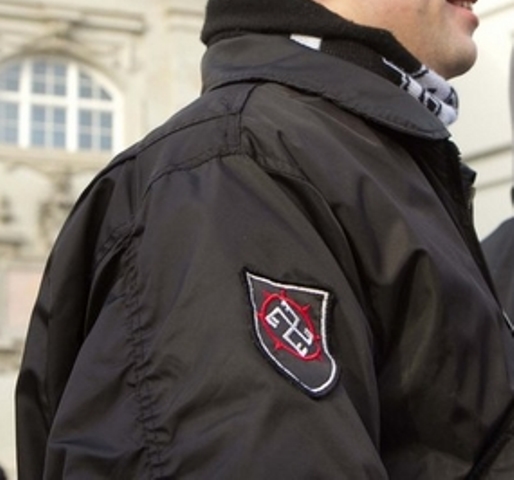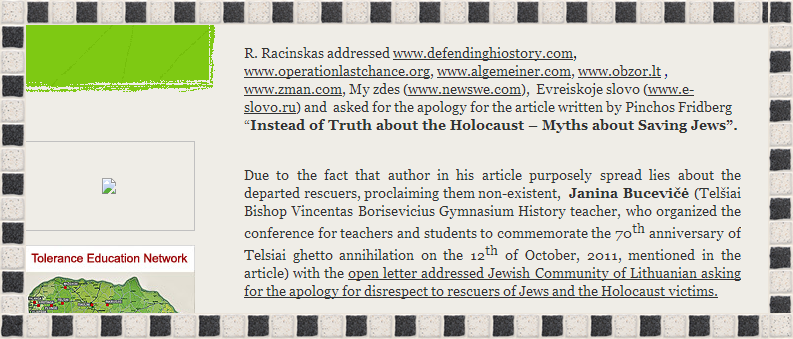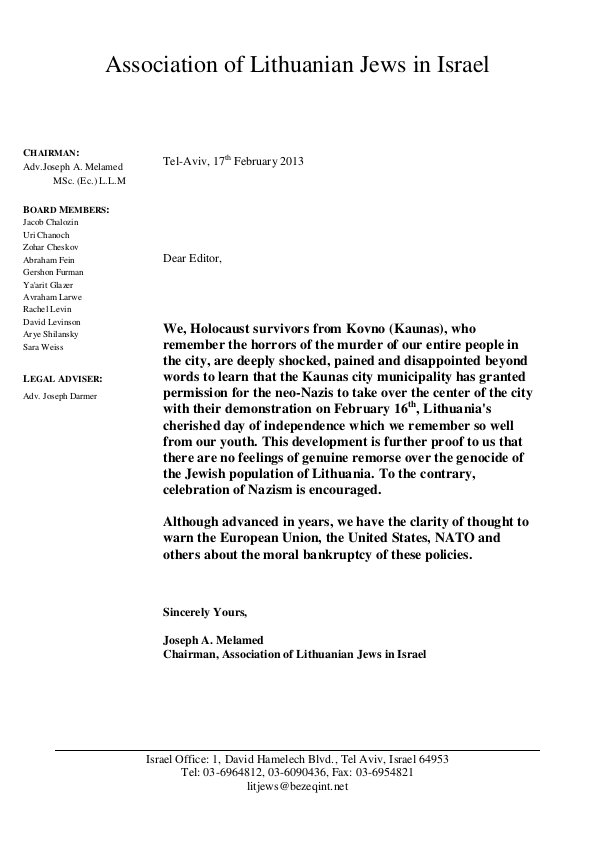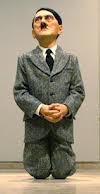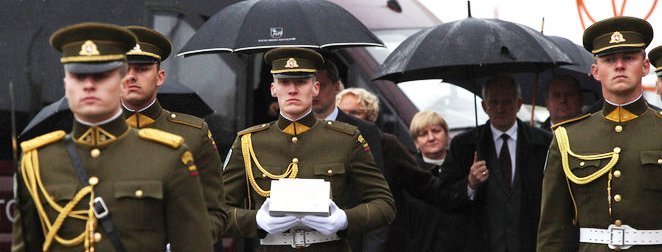E Y E W I T N E S S R E P O R T / O P I N I O N
Editor’s note: This adapted translation from the Lithuanian original, by Geoff Vasil, has been approved by the author.
On February 16 I visited Kaunas. I heard the neo-Nazis would try to desecrate the nation’s freedom, for which people of the country of all ethnicities had struggled. Sadly, the neo-Nazis are now shouting loudly: “Lithuania for Lithuanians…”
One of the organizers of the march boasted the vanguard of the march would be carrying a portrait of Ambrazevičius.
It’s worth recalling what sort of person he was. In 1941 Ambrazevičius led the Provisional Government formed by the LAF (Lithuanian Activist Front), the Provisional Government which called Lithuanian policemen to serve the Nazis, set up a concentration camp (at the Seventh Fort, where it all ended in the murder of several thousand Jews), and even while realizing the Nazis no longer needed their service, this gang went on to promulgate the “Regulations on the Situation of the Jews,” which legally deprived their neighbors of human rights, while on the ground armed people were already murdering Jews throughout Lithuania.
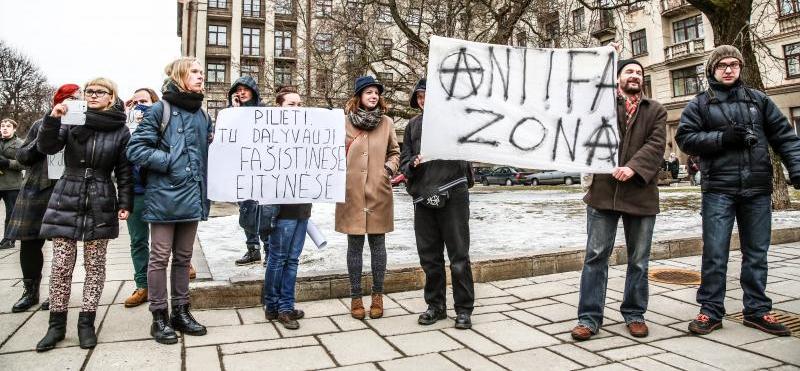
The author and his friends and colleagues who constituted the small “anti-fascist zone” at the March 16th neo-Nazi parade in Kaunas, Lithuania on the occasion of the nation’s independence day.
Continue reading

